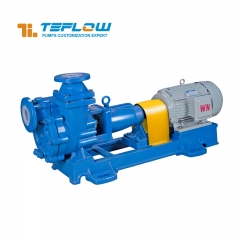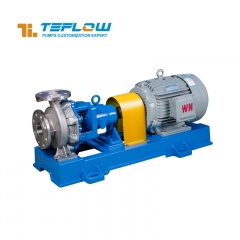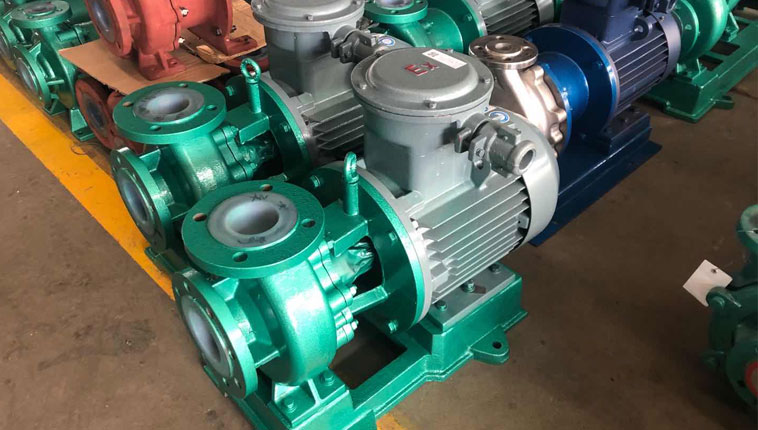Magnetic pumps are widely used in the modern chemical industry. Their working principle is to use magnetic coupling to transmit power, thereby avoiding the leakage problem caused by the shaft seal. When using magnetic pumps, users occasionally encounter the problem of loud noise during operation, which not only affects the production environment, but may also be a precursor to equipment failure. Therefore, it is particularly important to analyze and understand the reasons why the magnetic pump makes too much noise during operation. This article will discuss this issue in detail from multiple angles.
First of all, we need to understand the working principle of the magnetic pump. The magnetic pump transmits torque through a magnetic coupling to achieve contactless transmission of power, thus avoiding the leakage problem caused by traditional mechanical seals. Although this design reduces many leakage risks, it still encounters noise problems in actual applications.
1. Magnetic coupler problem
The magnetic coupling of the magnetic pump is one of its core components. It transmits power through the strong magnetic field generated by the rare earth permanent magnet. If the magnet inside the coupling becomes loose, falls off or demagnetized, it will cause the magnetic force transmission to be unstable and produce abnormal noise. In addition, if the isolation sleeve in the coupling is worn or damaged, causing friction between the internal and external magnets, it will also produce loud noise.
2. Bearing failure
The bearing quality and installation status of the magnetic pump directly affect its operating stability. Wear, damage or lack of oil in the rolling bearing will cause friction and vibration, thus generating noise. Regular maintenance of the magnetic pump to ensure that the mechanical parts are in the best condition is an important means to reduce noise.
3. Cavitation phenomenon in the pump
Cavitation is a phenomenon in which liquid vaporizes in low-pressure areas to form bubbles, which then burst in high-pressure areas. This phenomenon causes a large number of small bubbles to form in the pump and collapse quickly, making a harsh noise. The generation of cavitation is mainly related to factors such as the inlet and outlet pressure difference of the pump, the impeller structure, and the working liquid temperature. Reasonable design of the pump's inlet and outlet pipes, reduction of hydraulic losses, and control of the working liquid temperature can effectively prevent cavitation.
4. Foreign matter in the pump body
During the operation of the magnetic pump, if solid particles or other foreign matter enter the pump body, it will cause the pump body to make knocking sounds and noises. This usually happens when the pump feed system is not properly filtered or the conveying medium contains insoluble impurities. Therefore, it is very necessary to select appropriate filtering equipment and regularly check the cleanliness of the pump body.
5. The pump body and the motor are not aligned
The motor and pump body of the magnetic pump need to be precisely aligned. Once the alignment is deviated, the axial force and radial force are uneven, which will cause noise and vibration. This problem is usually related to the installation accuracy, foundation settlement and the installation of the motor coupling. Ensuring installation accuracy, regular calibration and checking the status of the coupling can reduce this type of noise.
6. Liquid idling or flow interruption
The magnetic pump must maintain continuous liquid flow during operation. If idling or flow interruption occurs, it will not only produce unstable noise, but also cause overheating and damage to the pump body and related components. Ensuring the normal operation of the liquid supply system and avoiding continuous operation of the pump without liquid is the key to preventing such problems.
In summary, the excessive noise generated by the magnetic pump during operation is mainly related to factors such as magnetic coupling, bearings, cavitation, foreign matter, centering status and liquid flow. By understanding the causes of these noises and taking corresponding prevention and maintenance measures, we can not only reduce noise problems and improve the working environment, but also extend the service life of the equipment and ensure the smooth progress of production.





 +86 18130251359
+86 18130251359 teflowpumps@tlpumps.com
teflowpumps@tlpumps.com











 +86+0563-5093318
+86+0563-5093318
